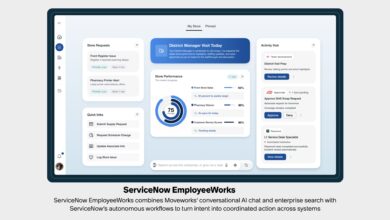Agentic AI: Uniquely Positioned to Address Complex, Multi-Step Problems

We speak to Roland Daccache, Senior Manager – Sales Engineering at CrowdStrike MEA, who discusses the evolving landscape of artificial intelligence, focusing on the rise of Agentic AI. Daccache defines Agentic AI as adaptive, goal-driven systems capable of autonomous decision-making and action, distinguishing them from traditional rule-based automation. He elaborates on how Agentic AI is uniquely positioned to address complex, multi-step problems, particularly within cybersecurity, by autonomously analyzing and responding to threats.
How do you define Agentic AI, and how does it fundamentally differ from traditional chatbots or rule-based automation?
Agentic AI represents the next frontier in artificial intelligence, systems that don’t just follow instructions or generate content, but actively make decisions, learn from their environment, and take action autonomously. Unlike traditional chatbots or rule-based automation, which operate within rigid, predefined parameters, agentic AI is adaptive, goal-driven, and capable of operating in dynamic, real-world environments. It can assess situations, adjust its strategy, and pursue objectives independently, continually refining its approach over time.
Beyond task automation, what complex, multi-step problems are agentic AIs uniquely positioned to solve that current AI models cannot?
As AI systems become more autonomous and adaptable, they are transforming industries by tackling complex challenges, optimizing operations, and driving innovation. Agentic AI is already making an impact across multiple domains, but especially in cybersecurity. Adversaries are weaponizing AI to launch attacks faster than ever, overwhelming security teams with floods of alerts.
With breakout times shrinking to minutes, defenders can’t afford to waste time sorting through false positives. Agentic AI can help SOC teams by autonomously analyzing, prioritizing, and taking response actions. CrowdStrike Charlotte AI Agentic Detection Triage, for example, triages security detections with over 98% accuracy, eliminating more than 40 hours of manual work per week on average.
Charlotte AI Agentic Response autonomously investigates threats like a seasoned analyst – accelerating root cause analysis, mapping lateral movement, and reducing time spent on repetitive alerts. And Charlotte AI Agentic Workflows lets teams embed AI-driven reasoning into automated playbooks to make dynamic decisions and generate tailored, multilingual communications. These capabilities supercharge SOC teams with speed, accuracy and control, freeing analysts from repetitive tasks, improving operational efficiency and delivering trusted AI-powered security.
How much autonomy should Agentic AI have in decision-making, and where should humans remain in the loop?
As AI systems become more autonomous, they must remain aligned with human values and safety standards.. Building fail-safes and oversight mechanisms into these systems is essential for maintaining control without stifling innovation.
At CrowdStrike, we have built bounded autonomy into Charlotte AI, which ensures it only operates within predefined limits set by security teams, delivering trusted, predictable actions without risk of overreach. This approach empowers human defenders without taking them out of the loop.
What’s the next frontier for Agentic AI—will we see AI “agents” collaborating like human teams?
The next frontier for agentic AI is collaboration, AI agents working together like human teams to solve complex problems, autonomously and in real time. Just as humans divide tasks based on expertise, AI agents will coordinate roles, share context, and adapt dynamically to achieve shared objectives. In cybersecurity, this means agents could investigate threats, contain breaches, and update defenses together, dramatically accelerating response times. Crucially, humans remain in the loop, guiding intent, setting guardrails, and overseeing decisions to ensure alignment with organizational goals. The key is trusted coordination between autonomous agents and human operators.




